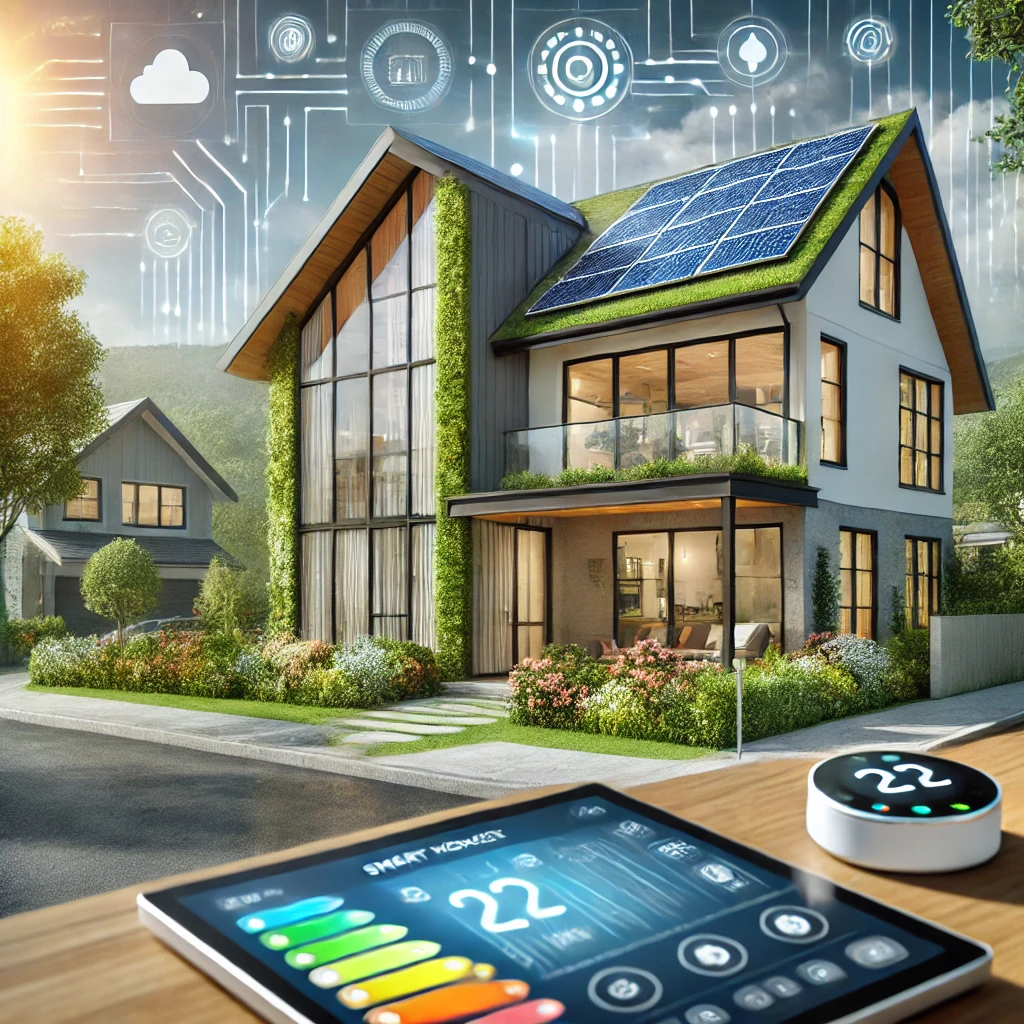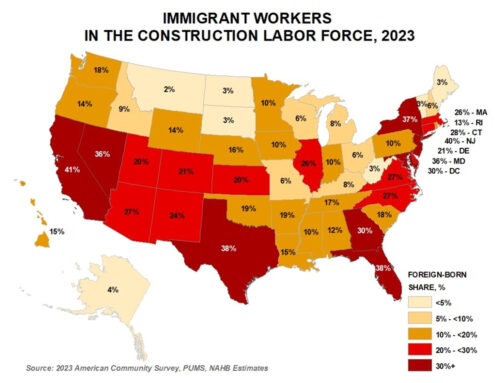The Importance of National Clean Energy Week and Its Impact on Home Building
September 24, 2024
National Clean Energy Week (NCEW) is an annual event that highlights the importance of clean energy and its role in mitigating climate change, promoting energy independence, and spurring economic growth. For the homebuilding industry, which significantly contributes to energy consumption and carbon emissions, NCEW serves as a pivotal moment to reflect on the future of sustainable construction, embrace innovative building practices, and advocate for policies that support clean energy initiatives.
The Emergence of National Clean Energy Week
NCEW, first observed in 2017, was established to bring together policymakers, businesses, environmental groups, and citizens to discuss the nation’s energy future. Over the years, this event has gained momentum and influence, creating a platform for various stakeholders to engage in conversations about how clean energy can drive economic growth, innovation, and job creation while also addressing environmental challenges like climate change.
The week-long series of events includes policy discussions, webinars, and panels on topics such as renewable energy sources (solar, wind, hydropower), energy efficiency, and energy storage technologies. It also provides opportunities for state and local governments to showcase successful clean energy projects and for corporations to highlight their efforts to reduce carbon emissions.
While clean energy is often discussed in the context of large-scale projects like wind farms or solar arrays, NCEW emphasizes that it’s not just about utility-scale initiatives. Small-scale, residential clean energy solutions, such as solar panels, geothermal heating, and energy-efficient building practices, also play a vital role in the nation’s shift toward cleaner energy.
The Significance of Clean Energy for the Homebuilding Industry
The homebuilding industry has traditionally relied on energy-intensive construction practices and materials that contribute significantly to greenhouse gas emissions. According to the U.S. Green Building Council, buildings account for nearly 40% of global carbon emissions, with a significant portion coming from residential structures. This makes the integration of clean energy into home construction not just an environmental necessity but also a business opportunity.
NCEW serves as a reminder that homebuilders have a responsibility and a unique opportunity to drive the transition toward more sustainable, energy-efficient homes. By adopting clean energy technologies and green building practices, homebuilders can significantly reduce the environmental impact of new homes while offering consumers long-term cost savings and healthier living environments.
1. Energy Efficiency and Net-Zero Homes
One of the primary focuses of NCEW is energy efficiency. Energy-efficient homes, which consume less power for heating, cooling, and lighting, are becoming increasingly important as energy costs rise and the effects of climate change become more pronounced. Homebuilders who incorporate energy-efficient designs and technologies into their projects can not only reduce the carbon footprint of their homes but also make them more attractive to environmentally conscious buyers.
Net-zero homes, which generate as much energy as they consume, are one of the ultimate goals in energy-efficient homebuilding. These homes typically feature solar panels, high-performance insulation, energy-efficient windows, and advanced HVAC systems. While the upfront cost of building a net-zero home may be higher, the long-term energy savings, coupled with tax incentives and rebates, make it a worthwhile investment for homeowners.
NCEW helps bring attention to the potential of net-zero homes, encouraging homebuilders to adopt these practices. It also serves as an advocacy platform for policies that make building net-zero homes more feasible, such as tax credits, subsidies, and updated building codes.
2. Renewable Energy Integration
The integration of renewable energy sources into homes is another critical aspect highlighted during NCEW. Solar power, in particular, has become one of the most accessible forms of renewable energy for homeowners. With advances in solar technology and decreasing installation costs, solar panels are becoming a standard feature in new home construction.
Homebuilders who integrate solar energy into their projects can offer buyers the benefits of reduced electricity bills, energy independence, and lower carbon footprints. NCEW plays a crucial role in promoting the adoption of residential solar power by raising awareness about its benefits and advocating for favorable policies, such as net metering and solar tax credits.
In addition to solar power, other renewable energy sources, such as geothermal and wind energy, are also gaining traction in the homebuilding industry. While these technologies are less common than solar, NCEW emphasizes their potential and encourages further innovation and adoption.
3. Smart Home Technology
Another key theme of NCEW is the role of technology in promoting energy efficiency and clean energy adoption. Smart home technologies, which allow homeowners to monitor and control their energy use in real time, are transforming the way people interact with energy in their homes.
Smart thermostats, for example, can learn a homeowner’s schedule and adjust heating and cooling settings to optimize energy efficiency. Similarly, smart lighting systems can be programmed to turn off when not in use, reducing unnecessary energy consumption. These technologies not only make homes more energy-efficient but also more convenient and comfortable for homeowners.
NCEW highlights the potential of smart home technology to complement renewable energy systems and maximize energy savings. By promoting the integration of these technologies into new homes, NCEW encourages home builders to design smarter, more sustainable living spaces.
4. Green Building Materials
The choice of building materials plays a significant role in determining a home’s energy efficiency and environmental impact. Traditional building materials, such as concrete and steel, are energy-intensive to produce and transport. In contrast, green building materials, such as reclaimed wood, recycled steel, and sustainable insulation, have a much lower environmental impact.
NCEW encourages homebuilders to consider the lifecycle of materials used in construction, from production to disposal. By choosing sustainable materials, builders can reduce the carbon footprint of their projects and promote a circular economy. Additionally, green building materials can improve indoor air quality and reduce health risks for occupants, making homes healthier places to live.
5. Policy Advocacy and Economic Opportunities
One of the most important aspects of NCEW is its focus on policy advocacy. For the homebuilding industry, supportive policies can make the difference between whether clean energy technologies are adopted on a large scale or remain niche options. NCEW provides a platform for the industry to advocate for policies that support clean energy integration, such as updated building codes, financial incentives for energy-efficient construction, and investment in renewable energy infrastructure.
Beyond environmental benefits, clean energy presents significant economic opportunities for the homebuilding industry. As consumer demand for energy-efficient, sustainable homes grows, builders who embrace clean energy technologies are positioning themselves for long-term success. According to the U.S. Department of Energy, energy-efficient home construction is expected to be a $100 billion market by 2026. By capitalizing on this trend, homebuilders can differentiate themselves in a competitive market and attract environmentally conscious buyers.
Conclusion
National Clean Energy Week is more than just an event; it is a call to action for industries, governments, and individuals to transition toward a cleaner, more sustainable energy future. For the homebuilding industry, NCEW is a reminder of the critical role that homes play in the nation’s energy consumption and carbon emissions. By adopting energy-efficient designs, integrating renewable energy sources, and advocating for supportive policies, homebuilders can lead the way in creating a more sustainable future.
The impact of NCEW on the homebuilding industry is profound, encouraging the adoption of cutting-edge technologies, promoting economic growth, and fostering environmental stewardship. Through the efforts highlighted and initiated during NCEW, the homebuilding industry has the potential to significantly reduce its carbon footprint, create healthier living environments, and contribute to a more sustainable energy future for generations to come.





